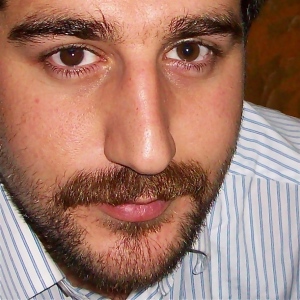by Phil Gravitt

Action photo by Graffizone
SONOMA COUNTY, CA – Lori Laube and Jen Côte are the co-owners and driving force behind American Eagle Studios. They place everyone from kids to older adults, from untrained to seasoned actors in smaller or local roles for films, commercials, television, print and voiceover jobs.
Some of their actors are self employed or are waiters, and are almost always available, while others support themselves with day jobs and occasionally risk their jobs to take off for auditions and filming.
Theater actors have an additional challenge explains Jen, “Theater actors are often in shows or rehearsals, and have to be off a shoot by 5:00 PM to be at the theater [for rehearsals or a performance] by 6:30. We try to accommodate them.” She continues, “A few actors we work with are experienced actors living in Marin or Sonoma who have done ‘the big thing’ in film, and want to keep a foot in acting and relax.”
Working with both theater and film actors, Jen has found that, “Some actors are more successful than others at making the transition between stage and film. Training helps you in either medium, teaching you to create character, analyze scripts. In film, the actors don’t have to be big in vocal choices and can be subtle in faces and expressions.”
The films American Eagle works on are often independent, with small budgets, usually involving actors who are not members of the Screen Actors Guild***. Jen explains, “We’re not a glamorous big time casting agency. We won’t make you a star. We are a good place to get exposure and footage for your reel, before moving to the City or LA and joining SAG and a larger agency.”
Actors register through American Eagle’s web site, and send in a head shot, a resume, and their sizes.
“We want as many actors at our disposal as possible,” Jen says. “If we or a client think an actor will fit the need, we will bring them in for an audition.”
When a client calls with a request for actors, Lori and Jen send them to the talent section of their web site.
Jen explains, “Once they review the head shots, they may give us three names they want to audition. When the client tells us they want a certain look, we offer more names from our files of people not on the site. Occasionally we’ll say, ‘This guy is a great actor, and has a good track record,’ and our clients take our word for it without auditioning. When we have auditions to fill a specific request, the client may sit in on an audition we hold.”
What does the future hold?
Jen says, “We believe the North Bay scene has potential to become a mecca for artists and filmmakers. Studios are springing up in Novato and Sausalito, producing and creating. Even in this economy people want to create. We hope they need actors and will call us and our actors will keep working.”
***American Eagle also has a long successful history of casting large independent films and television series as well as commercials. Recent film and television projects include Bottle Shock, Cheaper by the Dozen, Bartleby, and a number of series for The History Channel and Women’s Entertainment TV. Corporate clients include Comcast Spotlight, E.J. Gallo and Sonoma County Turism Bureau among many others. Additional information about American Eagle Studios is available at www.americaneaglestudios.com.
∞
Phil Gravitt is a freelance writer whose articles have appeared in the San Francisco Chronicle and Examiner, the Noe Valley Voice & other San Francisco neighborhood newspapers, and the Bay Area Visual Arts Blog http://www.BAArtQuake.com.
Additional articles by Phil Gravitt include:
- Developing Abilities in Theater Artists with Developmental Disabilities
- Theatrical Interpretation for Deaf/Hard of Hearing Audiences
- Break Some Rules, Take a Risk and Start a Theater Company



